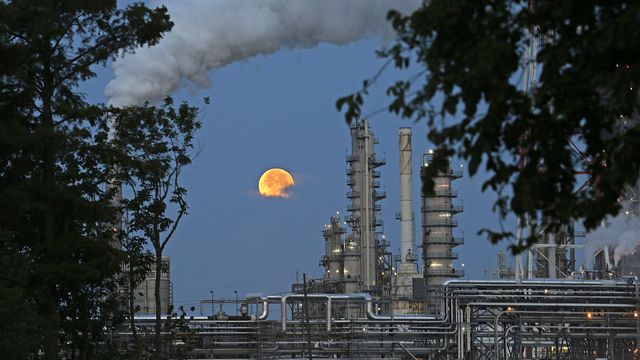
For decades, environmentalists have called for a tax on climate-changing CO2 emissions, arguing that it would be one of the most effective ways to reduce our country’s sizable carbon footprint. With such a tax, businesses would pay a fee for polluting, and, with the bottom line in mind, executives would quickly shift to low-carbon ways of operating. The market would find it’s own path to sustainability.
But Republicans in Congress largely oppose this idea, which many see as an infringement on the free market — a lurch to the right from when a similar system was first used by George H.W. Bush to combat pollution. The 1990 Clean Air Act included provisions, proposed by Bush, to use a cap-and-trade system to reduce sulfur emissions from power plants that were causing acid rain. At the time, Bush said, “By employing a system that generates the most environmental protection for every dollar spent, the trading system lays the groundwork for a new era of smarter government regulation; one that is more compatible with economic growth than using only the command and control approaches of the past.”
Today’s GOP rhetoric stands in stark contrast. “A national carbon tax would devastate an already struggling American economy, force the cost of gas at the pump to jump even higher and kill millions more jobs here at home,” Rep. Steve Scalise (R-LA) said last spring.
Scalise’s opinion is shared by many in his party, and with Republicans dominating the House, it doesn’t look like we’ll have a carbon tax in America anytime soon.
But Coral Davenport reports in The New York Times that many large corporations see such a tax as inevitable. From ConAgra Foods to Wal-Mart, Duke Energy to Google, companies are factoring a tax on carbon into their long-term financial planning. ExxonMobil, Davenport writes, is one such company, and “is representative of Big Oil’s slow evolution on climate change policy.”
A decade ago, the company was known for contributing to research organizations that questioned the science of climate change. In 2010, ExxonMobil purchased a company that produces natural gas, which creates less carbon pollution than oil or coal.
ExxonMobil is now the nation’s biggest natural gas producer, meaning that it will stand to profit in a future in which a price is placed on carbon emissions. Coal, which produces twice the carbon pollution of natural gas, would be a loser. Today, ExxonMobil openly acknowledges that carbon pollution from fossil fuels contributes to climate change.
“Ultimately, we think the government will take action through a myriad of policies that will raise the prices and reduce demand” of carbon-polluting fossil fuels, said Alan Jeffers, an ExxonMobil spokesman.
Internally, ExxonMobil now plans its financial future with the expectation that eventually carbon pollution will be priced at about $60 a ton, which Mr. Jeffers acknowledged was at odds with some of the company’s Republican friends.
“We’re going to say and do what’s in the best interest of our shareholders,” he said. “We won’t always be on the same page.”
It remains unlikely that any climate policy will move in today’s deadlocked Congress, but if Congress does take up climate change legislation in the future, Mr. Jeffers said ExxonMobil would support a carbon tax if it was paired with an equal cut elsewhere in the tax code — the same policy that Mr. Gore has endorsed. “ExxonMobil and many other large companies understand that climate change poses a direct economic threat to their businesses,” said Dan Weiss, director for climate policy at the Center for American Progress, a liberal research group with close ties to the Obama administration. “They need to convince their political allies to act before it’s too late.”
But not everybody is in board. Industrialists Charles and David Koch and the influential political organizations they fund staunchly oppose action on climate change and are pointedly indifferent to larger shifts in thinking among the business community. Davenport writes that, on the carbon tax issue, they are ready for a fight.

